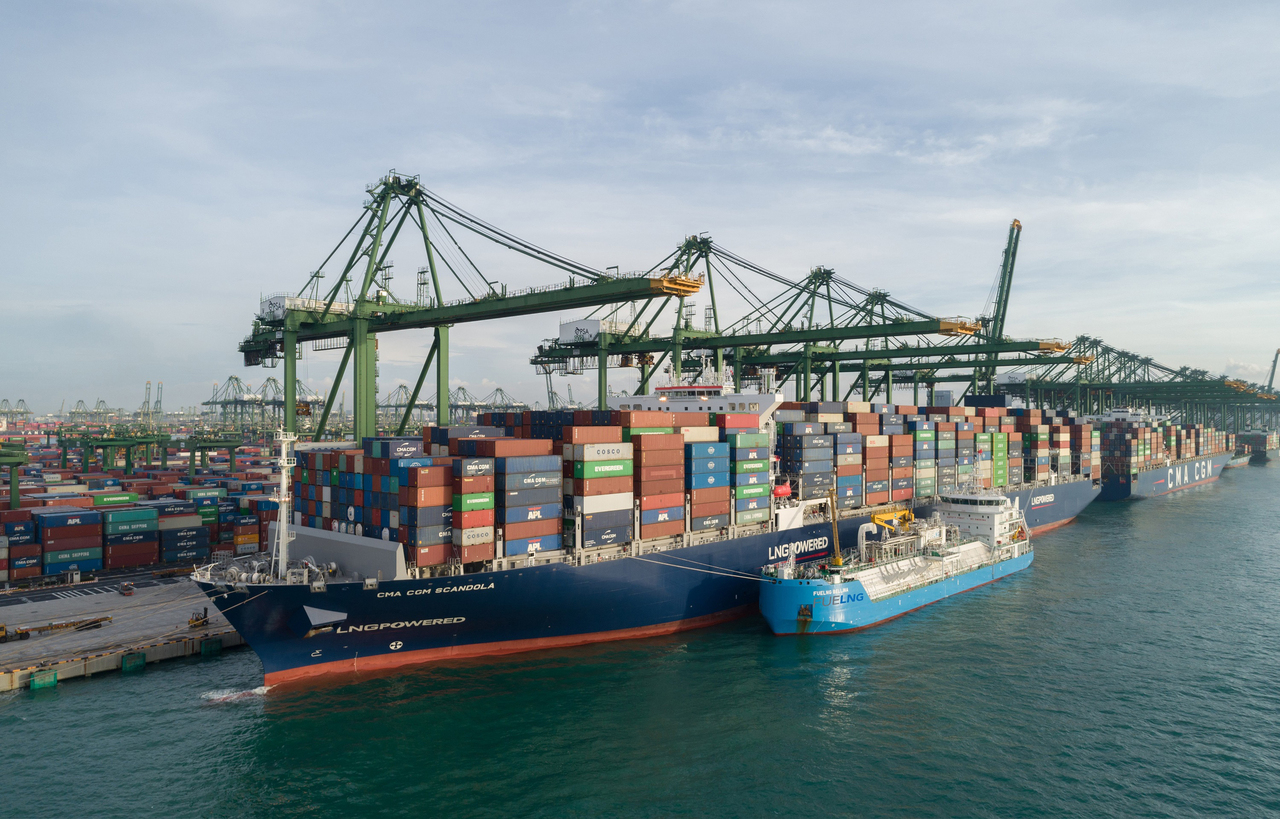Singapore completes first ship-to-ship bunkering of LNG-fuelled oil tanker
Sign up now: Get ST's newsletters delivered to your inbox

A file picture of the FueLNG Bellina, Singapore's first LNG bunkering vessel, which was involved in the operation.
PHOTO: COURTESY OF CMA CGM GROUP AND FUELNG
SINGAPORE - The country's efforts to become a LNG bunkering hub have taken a major step forward after around 3,000 cubic m of liquefied natural gas were transferred from a vessel to an oil tanker in the Port of Singapore.
The process - a first here - involved the bunkering vessel FueLNG Bellina completing the "gas-up and cool-down operation" to the LNG-powered Pacific Emerald, one of 10 similar tankers chartered by Shell Tankers Singapore.
Another 30 to 50 of such ship-to-ship LNG bunkering operations will be undertaken by the same players this year, noted the Maritime and Port Authority of Singapore (MPA) and FueLNG, which completed the bunkering on Friday (May 7).
Containerships, bulk carriers and other vessels have also been lined up for LNG bunkering.
MPA chief executive Quah Ley Hoon said: "We see increased interest in LNG-fuelled vessels with more of such new vessels on order across various ship types. We look forward to an increase in uptake of LNG as a marine fuel in the Port of Singapore."
LNG is an immediate fuel solution that can reduce the environmental impact of maritime transport, producing fewer carbon emissions than oil-based marine fuels.
It also produces less sulfur dioxide, particulate matter and nitrogen oxide, and unlike carbon-zero options such as ammonia and hydrogen, it is already widely used and proven to be commercially viable.
Mr Tahir Faruqui, director of FueLNG, the joint venture between Keppel Offshore & Marine and Shell Eastern Petroleum that owns the FueLNG Bellina, said: "Emissions are cumulative, and the shipping sector simply cannot afford inaction.
"LNG is the lowest-emission fuel available at scale in the shipping sector today and has a key role in its decarbonisation journey."
The International Maritime Organisation aims to cut the sector's greenhouse gas emissions by half by 2050 and achieve net zero as soon as possible within the century.
Secretary-general Kitack Lim has said the industry will have to transform to meet sustainability goals.
Private companies are playing a key role in this change. Shell, for instance, is trialling the use of hydrogen fuel cells for ships.


